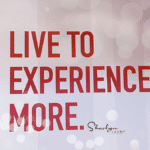I’ve always been a person who has a full-plate. I like to keep busy – so life for me is my family, work, volunteerism, hobbies, etc. For many years, my volunteerism (i.e. being involved with SHRM) has been related to my work. So I didn’t feel like I was spreading myself too thin where work/life balance was concerned.
But in a few months my volunteer role with SHRM will be coming to an end and I’m trying to figure out what’s next for me. Do I want to seek out new opportunities with SHRM, or offer my talents to a local board or maybe even focus on something completely different?
I think it’s a part of human nature to want to be “known” for something. Maybe it’s with a hobby like Build a Better Burger competitions or in social media as a Twitter influencer. Either way, it’s cool to be recognized as the “go-to” person for something.
But I’ve come to realize you can overdo that “thing for which you are known”. If you rely upon your strength too much, it can become a liability for you.
For example, I spent several years volunteering on the planning committee for a conference. I really enjoyed it – met wonderful people and really learned a lot. But 
Not a liability in terms of the relationships or experience, but because the conference became the “thing” people associated me with. They thought of me as a volunteer meeting planner and forgot I’m a training consultant. Now that some time has passed, my conversations with those people aren’t about the conference but about other things closer related to who I truly am.
This realization really came into focus for me because I’ve seen it with other people. People who constantly go on and on about one event or one book or one thing. You know, like a broken record. Like the whole world is going to come to a screeching halt if you don’t get on board with what they’re talking about.
As individuals, we should definitely be cognizant of our strengths and passions, and leverage what sets us apart from others. But we can’t rely on it completely. Real rock stars and gurus aren’t one dimensional. We can’t be either.
Image courtesy of adria.richards
0







Jason Lauritsen says
I have found that bringing my tool kit of people knowledge and HR expertise to boards outside of the HR realm is very rewarding (for both me and the organization I’m serving). Most not-for-profit organizations have all of the same people challenges and dysfunction that for-profit groups do, but they often don’t invest in internal HR expertise. Making your HR/training expertise available to the Executive Director/President of the organization and the board leadership can be really powerful. Selfishly, these groups are often much more appreciative of the help than our employees/customers are much of the time. It really helps remind me of the value of the work we do as advisors in HR.
Good luck with whatever you decide to pursue next.
Kirk Baumann says
Great post Sharlyn! It is very important to play to your strengths. But, one must have balance so one isn’t defined entirely by them. Keep up the great work!
laurie ruettimann says
I’m glad you wrote this.
On my end, I want to mix things up — but sometimes I’m stuck. Your post validates that feeling I get when I want to drop HR, career advising and Scrubby (okay, maybe not Scrubby) and stretch myself in new ways. I want to learn something new and talk about new things.
Okay, I’ll try.
Sharlyn Lauby says
Thank you so much for the comments!
@Jason – I agree it can be very rewarding to offer HR expertise to an organization outside of HR. And there are so many worthwhile organizations to be a part of.
@Kirk – Sometimes I’m not so great in the balance department, but as I get older, I’m getting better at defining priorities and boundaries.
@Laurie – I can totally empathize with the desire to try new things. I feel I’ve become a better HR pro when I really stretch my comfort zone.
Mark Stelzner says
I like this post Sharlyn – well done. My sense is that most people I know are going through this metamorphosis right now and attempting to either shed things that are no longer relevant to who they are (or who they hope to be) or exposing themselves to new markets/experiences/activities. I definitely fall into that camp and look forward to hearing about what’s next.
Jennifer Hitchens says
Thanks Sharlyn, I really enjoyed this post and couldn’t agree more about the need to be multi-dimensional. While it’s good to be an expert in a specific field/area, wearing many hats helps keep it interesting and engaging. Thanks again!
Sharlyn Lauby says
Thanks for the comment Mark. I agree with your observations. Do you think it has any connection to the economy?
Jennifer, thanks for sharing. I’ve always enjoyed wearing many hats…glad to see I’m not alone.